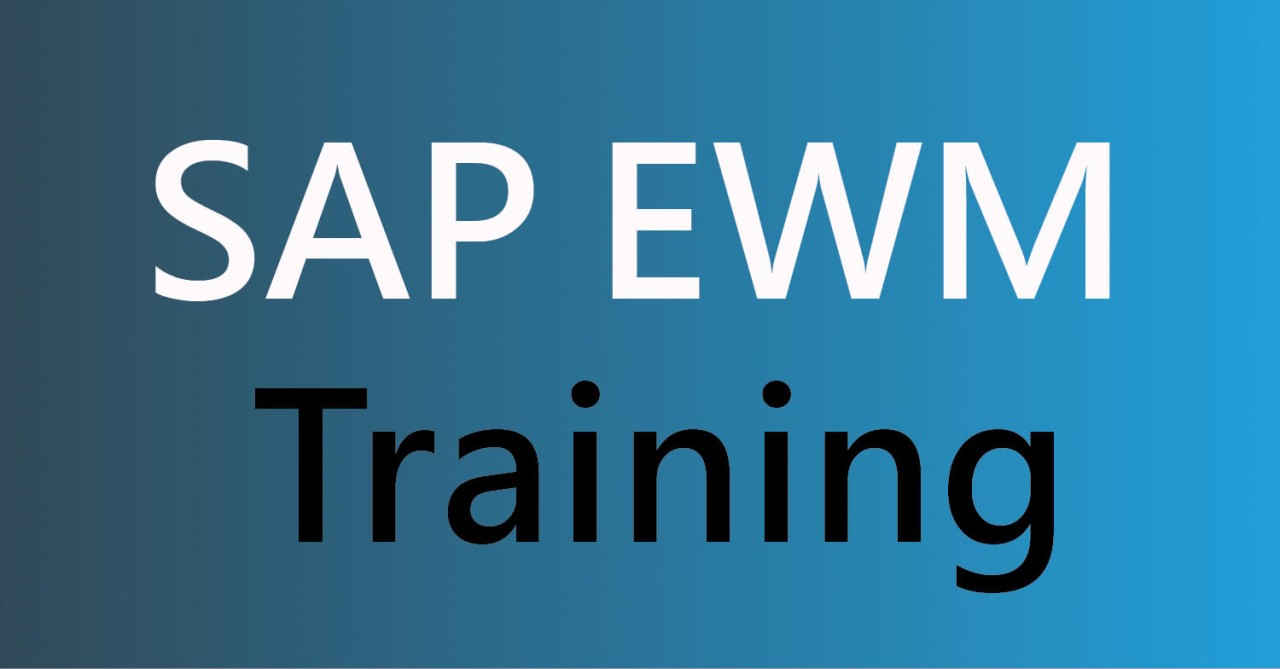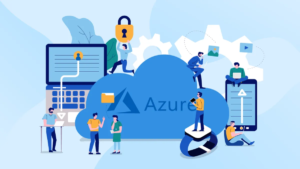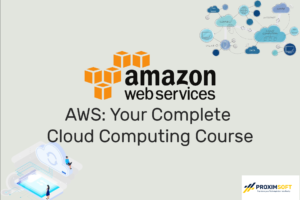Categories SAP
Practical SAP EWM Training

Step into the world of advanced warehouse management with Proximsoft’s SAP EWM Training, a carefully designed course for mastering SAP Extended Warehouse Management (EWM). Our industry experts have crafted a comprehensive program that seamlessly blends theory with hands-on skills, ensuring you’re well-equipped to navigate the dynamic landscape of warehouse management.
Join Proximsoft’s SAP EWM Training to explore SAP Extended Warehouse Management (EWM) and enhance your skills in optimizing warehouse operations. Developed by seasoned professionals, this course not only imparts theoretical knowledge but also sharpens your practical abilities, empowering you to excel in the efficient management of warehouses using cutting-edge technology.
Why Learn SAP EWM?
- SAP EWM (Extended Warehouse Management) is widely adopted across industries as a standard solution for efficient warehouse management, making it a valuable skill in various sectors.
- Learning SAP EWM allows professionals to integrate warehouse processes seamlessly with broader logistics and supply chain management, enhancing overall operational efficiency.
- EWM provides real-time visibility into inventory, order status, and warehouse activities, enabling better decision-making and improved responsiveness to changing business needs.
- Efficient warehouse management facilitated by SAP EWM contributes to timely and accurate order fulfillment, leading to improved customer satisfaction and loyalty.
- As EWM is a specialized module within the SAP ecosystem, acquiring proficiency in it can open doors for career advancement. Organizations value professionals who can contribute to optimizing their warehouse management processes using SAP EWM.
| Mode of Training | Online live Interactive sessions |
| Duration of the Training | 6 weeks |
| Training duration per day | 60 – 90 min session |
| Software Access | Software will be installed/server access will be provided, whichever is possible |
| Training Materials | Soft copy of the material will be provided during the training |
| Training fee | Depends on the Requirement |
| Resume Preparation | Yes, at the end of the course based on the JD |
| Interview Preparation | Yes, by sharing some FAQ’s |
| Mock calls | Yes, 2 Technical Mock calls |
| Internship Project | Yes |
| Certification | Yes, at the end of the training |
| JOB Assistance | Yes |
| JOB Support | Yes |
| Weekdays | 6AM -2 PM EST & 6-11:30 PM EST (student can pick any 1 hr) |
| Weekends | 8 AM – 12 PM EST (student can pick any 2 hrs) |
What I will learn?
- Basic understanding of warehouse operations.
- Familiarity with SAP ecosystem basics.
- Fundamentals of SAP EWM
- EWM Structure
- Master Data Management
- Warehouse Stock Management
- Warehouse Document Types
- Integration with ERP
- Inbound and Outbound Processing
- Internal and Multistep Warehouse Movements
- Physical Inventory
- Value-Added Services (VAS) and Kitting
- Data Capture and Resource Optimization
- Deployment and Post-Processing Framework
Course Content
Module 1: Introduction to SAP EWM
- Basics of SAP EWM
- Integration with ERP
- Delivery Document Integration
Module 2: EWM Structure
- Storage Types
- Storage Sections
- Storage Bins
- Activity Areas
- Doors and Staging Areas
- Work Centers
Module 3: Master Data Management
- Product Master Data
- Business Partner Data
- Supply Chain Units
- Master Data for Transportation
- Packaging Specifications
- Resources
Module 4: Warehouse Stock Management
- Stock Types
- Owner
- Party Entitled to Dispose
- Batch Management
- Handling Unit Management
- Transportation Units
Module 5: Warehouse Document Types
- Inbound Delivery Documents
- Outbound Delivery Documents
- Warehouse Tasks
- Warehouse Orders
- Physical Inventory Documents
Module 6: Integration from ERP to EWM
- Basic System Setup
- Master Data Integration
- Delivery Integration
Module 7: Inbound Processing
- Goods Receipt Preparation
- Unloading and Goods Receipt
- Posting Goods Receipt
Module 8: Putaway Processing
- Process-Oriented Storage Control for Inbound Processes
- Layout-Oriented Storage Control for Inbound Processes
- Deconsolidation
- Value Added Services
Module 9: Outbound Processing
- Outbound Delivery Creation
- Warehouse Process Type Determination
- Wave Management
- Warehouse Order Creation during Outbound Processes
- Storage Type Determination
- Stock Removal Strategies
- Storage Control in Outbound Processes
Module 10: Internal Warehouse Movements
- Replenishment
- Rearrangement
- Ad Hoc Moves
- Posting Changes
Module 11: Multistep Warehouse Movements
- Process-Oriented Storage Control
- Layout-Oriented Storage Control
Module 12: Physical Inventory
- Physical Inventory Documents
- Physical Inventory Areas
- Difference Analyzer
- Stock Comparison to ERP
- Supported Methods for Physical Inventory
Module 13: Warehouse Monitoring and Reporting
- Warehouse Management Monitor
- Personalizing the Warehouse Monitor
- Warehouse Reporting
Module 14: Exception Handling
- Configuring Exception Codes
- Defining a New Exception Code
- Defining a New Exception Code
Module 15: Cross-Docking
- EWM-Triggered Opportunistic Cross-Docking
- Push Deployment and Pick From Goods Yard Management
- Yard Management Structure
- Transportation Units and Vehicles
- Check-In and and Check-Out
- Yard Movements
- Monitoring the Yard
Module 16:Value-Added Services (VAS)
- Configuration and Master Data for VAS
- VAS Order Creation
- Using the VAS Work Centre and VAS Execution
- VAS for Outbound Process
- VAS for Inbound Processes
Module 17: Kitting
- Kit to Order using ERP Sales Orders
- Kit to Stock
Module 18: Data Capture and Resource Optimization
- Overview of Data Capture Methods for Warehousing
- Resource Management and Warehouse Optimization
- System-Guided Processing RF Framework
- Advantages of the EWM RF Framework
- Setup of the RF Framework
- Enhancing the EWM RF Transactions
- Personalization of the EWM RF Transaction
Module 19: Post-Processing Framework (PPF) and Form Printing
- Overview of the PPF
- Defining Action Profiles and Actions
- Condition Configuration
Module 20:Deploying Extended Warehouse Management
- Deployment Options for EWM
- Deploying EWM on ERP
- Connecting EWM to a Non-SAP ERP Automatic Configuration
- BC Sets for EWM Configuration
- Executing and Troubleshooting BC Sets Data Loads
- Loading Business Partners
- Loading Products
- Loading Storage Bins
- Loading Storage Bin Sorting
- Loading Stock
Course Duration: 30h
Course level:All Levels
Requirements
- Basic understanding of warehouse operations.
- Familiarity with SAP ecosystem basics.
- No prior SAP EWM knowledge required; the course is designed for beginners and experienced professionals alike.
Talk to Our Career Advisor
FAQ'S
SAP EWM is designed to enhance operational efficiency by providing flexible and automated support for processing product flows and optimizing stock management in warehouses.
No, the course is designed for both beginners and experienced professionals. It covers the basics for beginners and delves into advanced concepts for professionals.
Completing the course opens doors to various career opportunities, including roles as an EWM consultant, EWM functional lead, or EWM project manager, with growing demand in supply chain management.
The course emphasizes real-world project experience, allowing participants to apply their learning in practical scenarios, ensuring hands-on experience with SAP EWM functionalities.




